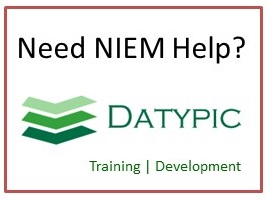gml:conversionRef
Element information
Namespace: http://www.opengis.net/gml/3.2
Schema document: external/ogc/gml/3.2.1/deprecatedTypes.xsd
Type: gml:ConversionPropertyType
Properties: Global, Qualified
Content
- Choice [0..1]
- gml:Conversiongml:Conversion is a concrete operation on coordinates that does not include any change of Datum. The best-known example of a coordinate conversion is a map projection. The parameters describing coordinate conversions are defined rather than empirically derived. Note that some conversions have no parameters. This concrete complex type can be used without using a GML Application Schema that defines operation-method-specialized element names and contents, especially for methods with only one Conversion instance. The usesValue property elements are an unordered list of composition associations to the set of parameter values used by this conversion operation.
- gmx:ML_Conversion
from subst. group gml:Conversion
Attributes
| Name | Occ | Type | Description | Notes |
|---|---|---|---|---|
| xlink:type | [0..1] | xsd:string | Fixed value is "simple". from group xlink:simpleLink | |
| xlink:href | [0..1] | xsd:anyURI | from group xlink:simpleLink | |
| xlink:role | [0..1] | xsd:anyURI | from group xlink:simpleLink | |
| xlink:arcrole | [0..1] | xsd:anyURI | from group xlink:simpleLink | |
| xlink:title | [0..1] | xsd:string | from group xlink:simpleLink | |
| xlink:show | [0..1] | Anonymous | The 'show' attribute is used to communicate the desired presentation of the ending resource on traversal from the starting resource; it's value should be treated as follows: new - load ending resource in a new window, frame, pane, or other presentation context replace - load the resource in the same window, frame, pane, or other presentation context embed - load ending resource in place of the presentation of the starting resource other - behavior is unconstrained; examine other markup in the link for hints none - behavior is unconstrained | from group xlink:simpleLink |
| xlink:actuate | [0..1] | Anonymous | The 'actuate' attribute is used to communicate the desired timing of traversal from the starting resource to the ending resource; it's value should be treated as follows: onLoad - traverse to the ending resource immediately on loading the starting resource onRequest - traverse from the starting resource to the ending resource only on a post-loading event triggered for this purpose other - behavior is unconstrained; examine other markup in link for hints none - behavior is unconstrained | from group xlink:simpleLink |
| nilReason | [0..1] | gml:NilReasonType | from group gml:AssociationAttributeGroup | |
| gml:remoteSchema | [0..1] | xsd:anyURI | from group gml:AssociationAttributeGroup |
Sample instance
<gml:conversionRef> <gml:Conversion gml:id="ID"> <gml:metaDataProperty> <gml:GenericMetaData>Any text, intermingled with: <!--any element--> </gml:GenericMetaData> </gml:metaDataProperty> <gml:description>string</gml:description> <gml:descriptionReference/> <gml:identifier codeSpace="http://www.example.com/">string</gml:identifier> <gml:name>string</gml:name> <gml:remarks>string</gml:remarks> <gml:domainOfValidity> <gmd:EX_Extent>............ </gmd:EX_Extent> </gml:domainOfValidity> <gml:scope>string</gml:scope> <gml:coordinateOperationAccuracy> <gmd:DQ_RelativeInternalPositionalAccuracy>........................ </gmd:DQ_RelativeInternalPositionalAccuracy> </gml:coordinateOperationAccuracy> <gml:method> <gml:OperationMethod gml:id="ID">... </gml:OperationMethod> </gml:method> <gml:parameterValue> <gml:ParameterValue>...... </gml:ParameterValue> </gml:parameterValue> </gml:Conversion> </gml:conversionRef>



